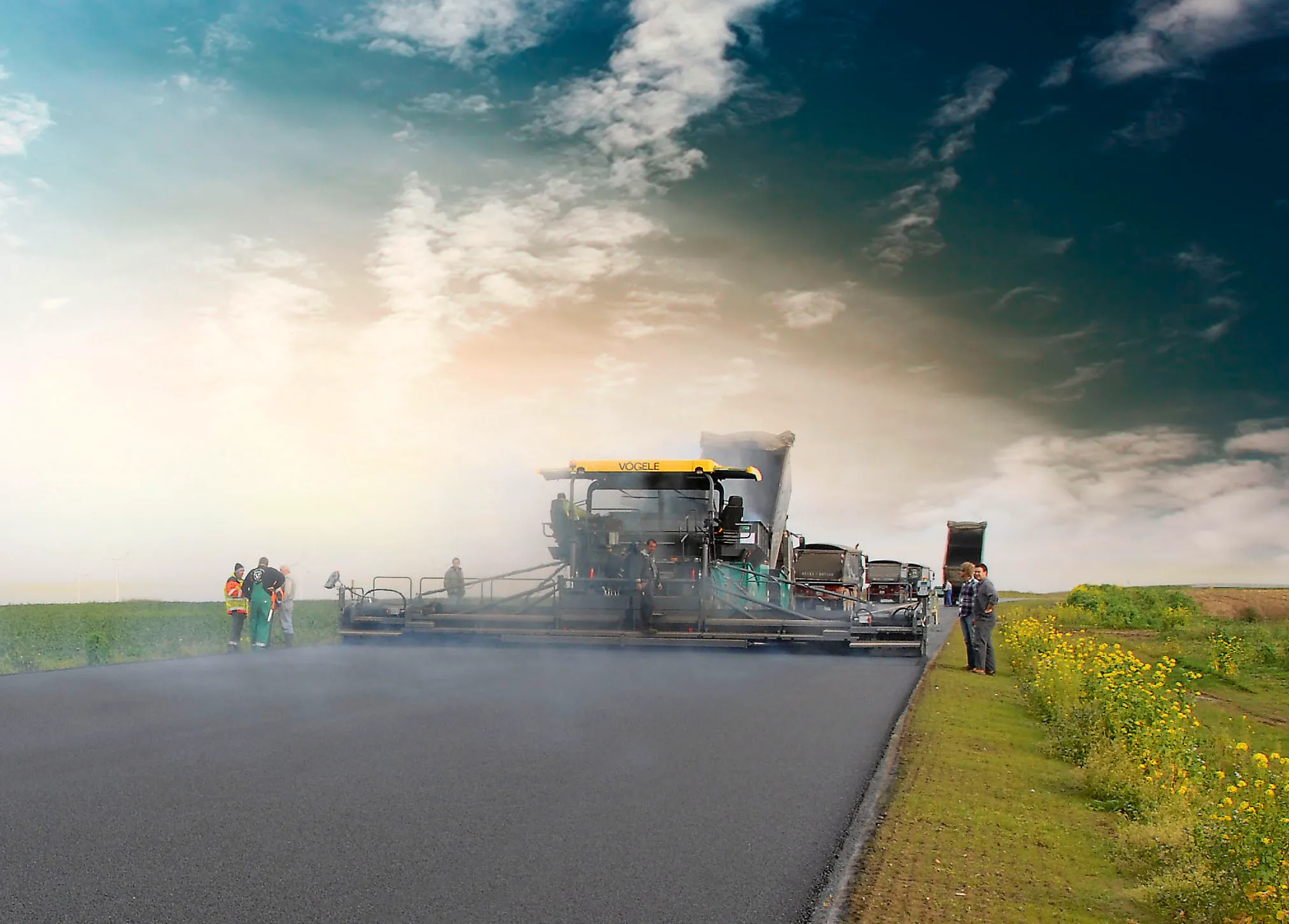Equipment Used in Road Construction: Your Guide to Building Better Roads
Ever driven down a freshly paved road and wondered, “How’d they do that?” Road construction is a well-choreographed dance of powerful machines, each playing a crucial role in transforming dirt and gravel into smooth, safe roadways. Let’s take a look at the heavy hitters in the world of road construction:
1. Excavators: The Earth Movers
Imagine a giant metal arm with a claw, capable of scooping up tons of earth in a single go. That’s an excavator! These powerful machines are the workhorses of road construction, responsible for:
- Digging trenches for foundations, drainage systems, and burying utility lines.
- Removing obstacles like rocks and trees.
- Preparing the foundation for the road.
2. Graders: The Levelers
Ever noticed how roads are perfectly flat, even on hills? That’s the magic of graders. These machines have a long, adjustable blade that:
- Smooths and levels the ground.
- Creates the slopes needed for proper drainage.
- Ensure a perfectly even surface for paving.
Think of them as the giant smoothers of the construction world.
3. Rollers: The Compactors
Once the roadbed is prepped, it’s time to make it rock-solid. That’s where rollers come in. These heavy machines:
- Use their immense weight (and sometimes vibration) to compact the soil, gravel, or asphalt.
- Create a stable base that prevents the road from settling unevenly and forming cracks later on.
They’re like giant rolling pins, pressing everything firmly into place.
4. Pavers: The Road Layers
Now for the main event: laying the road surface itself! Pavers are like giant moving factories that:
- Take in asphalt or concrete.
- Lay it down with incredible precision.
- Smoothly spread the material to create a seamless surface.
Think of them as the artists of road construction, carefully crafting the final layer.
What Are the Different Types of Road Construction Equipment?
We’ve covered the major players, but a successful road construction project requires a diverse team of specialized machines. Let’s explore some of the other essential equipment:
The Big Players
- Excavators: As we’ve discussed, excavators are the muscle behind any road project, digging, clearing, and shaping the roadbed.
- Graders: Graders are the precision instruments, ensuring a level and properly sloped surface for paving.
- Rollers: Rollers provide the crucial step of compaction, creating a stable foundation for the road.
- Pavers: Pavers handle the meticulous task of laying down the final asphalt or concrete surface.
Supporting Cast: The Essential Crew
- Truck Cranes: These heavy lifters transport massive items around the construction site, like concrete slabs or bridge sections.
- Wheel Loaders: Wheel loaders are the workhorses, scooping and moving materials like dirt, gravel, or debris, and loading them into trucks.
- Skid Steer and Track Loaders: These compact machines are ideal for maneuvering in tight spaces, handling smaller excavation jobs, and loading materials.
- Cold Planers: When resurfacing a road, cold planers remove the old asphalt, grinding away the top layer for new pavement.
- Dump Trucks: The unsung heroes, dump trucks, transport materials to and from the site, ensuring a steady flow of supplies and removal of debris.
How Does Road Construction Equipment Work?
Each piece of equipment is like a specialized tool in a giant toolbox, all working together to build a road. Let’s take a closer look at the mechanics behind some of these machines:
Excavators: The Power of Hydraulics
Excavators utilize a hydraulic system—using pressurized fluid—to power the arm’s movements, giving them the strength to move massive amounts of dirt with precision.
Graders: Precision Through Hydraulics
Similar to excavators, graders rely on hydraulics to control the blade’s height and angle, allowing operators to create those perfectly smooth and even surfaces.
Rollers: Compaction Techniques
Rollers use different methods for compaction, some relying on their massive weight and others utilizing vibration to achieve a dense and stable foundation.
Pavers: Laying It Down Smooth
Pavers are designed for precision and efficiency, ensuring a smooth and consistent layer of pavement. They are equipped with a hopper that holds the asphalt or concrete and a screed that spreads the material evenly.
The Human Element
While these machines are impressive, it’s crucial to remember the skilled operators behind the controls. Their expertise brings these machines to life, allowing them to build the infrastructure we rely on.
What Are the Benefits of Using Road Construction Equipment?
Using specialized equipment isn’t just about making the job easier; it’s about working smarter to achieve better results and offering a multitude of advantages:
- Increased Efficiency and Productivity: Construction tasks are completed much faster with specialized machinery, which translates to quicker project completion times.
- Reduced Costs: Labor expenses are significantly minimized as machines take on tasks that would require a large manual labor force.
- Superior Road Quality: Precision engineering allows for smoother, more durable roads that require less maintenance over their lifespan, saving money on future repairs.
- Enhanced Safety: Workers are less exposed to potential hazards when heavy lifting and intricate maneuvers are handled by machines, creating a safer construction site.
Sustainability and Durability: Building for the Future
Road construction equipment plays a vital role in creating sustainable and durable infrastructure:
- Sustainable Materials: These machines make it easier to incorporate recycled materials, reducing waste and our environmental footprint.
- Durability for the Long Haul: Properly compacted and graded roads are more durable and less prone to damage, extending their lifespan and reducing the need for frequent repairs.
- Equipment Built to Last: Durable machines have a longer lifespan, meaning fewer replacements and less waste in the long run.
Understanding the different types of road construction equipment and their benefits provides a greater appreciation for the complexity of these projects. It highlights how essential these powerful machines and skilled operators are in creating the smooth, safe, and well-connected roadways we often take for granted.
- Gray Kitchen Backsplash Tile: Ideas for a Stylish Upgrade - December 14, 2025
- Backsplash For Gray Cabinets: Choosing the Right Backsplash Style - December 13, 2025
- Gray And White Backsplash: Ideas For Timeless Style - December 12, 2025









